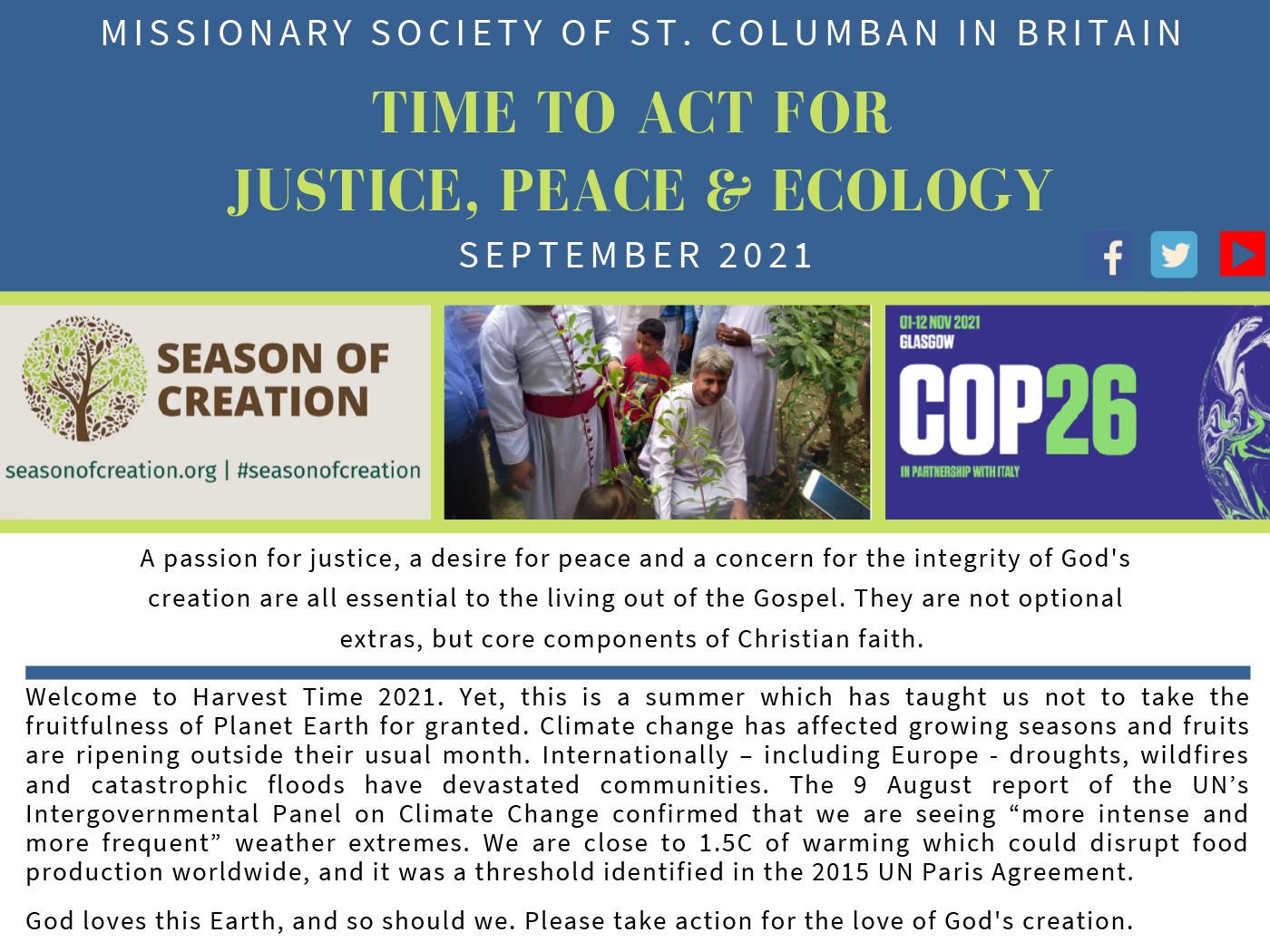Welcome to Harvest Time 2021. Yet, this is a summer which has taught us not to take the fruitfulness of Planet Earth for granted. Climate change has affected growing seasons and fruits are ripening outside their usual month. Internationally – including Europe – droughts, wildfires and catastrophic floods have devastated communities. The 9th August report of the UN’s Intergovernmental Panel on Climate Change confirmed that we are seeing “more intense and more frequent” weather extremes. We are close to 1.5C of warming which could disrupt food production worldwide, and it was a threshold identified in the 2015 UN Paris Agreement.
Earth is no longer our playground, gently providing all we need and asking no questions. Earth is restless, always on the move, ready to shock us out of our complacency and make us think again. Suddenly, life doesn’t seem to be as simple and our environment as stable as we thought. Perhaps we often selfishly just take what we want without ever thinking that God’s hand is in all the good gifts around us, and also that God is present in every community experiencing disaster and calling for humanitarian aid and justice.
This month, we are at what is known by Christian Churches as Creation Time, or the Season of Creation, surrounded by a wonderful display of God’s goodness at Harvest Time. How right it is to give thanks at least once a year for the reaping of produce which fills our larders and our stomachs. God’s goodness surrounds us and provides for us every day of our lives.
This is a time to truly appreciate the gifts of the natural world and to take stock. We are presented with this wonderful opportunity with the Season of Creation, which runs throughout September until the Feast of St. Francis on 4th October.
First of all, this is a great time for parents and teachers to take children outside and help them become familiar with what the season offers. Children feel themselves drawn towards the spiritual in nature, but unless this yearning is welcomed and strengthened by the adults around them either it dies away or they lose confidence in their intuition.
And there is more we can do. On personal lifestyle, we can test every decision and every purchase we make against the test: ‘Will my decision do good or harm to God’s creation?’ We can buy fairtrade, for example. This helps to support producers in the developing world who are struggling with the effects of climate change on their traditional crops.
Ending the age of fossil fuel with its carbon dioxide and methane emissions is the huge challenge, and we must address agriculture and diet, construction and transportation, saving woodland and forests and environmental protection. We can choose to use a green energy supplier for our electricity, not being dependent on the fossil fuels which are causing the climate to change. We could engage with the COP26 UN Climate meeting in Glasgow this November, helping to make it a success.
And the Season of Creation is very much about celebrating our close links with the natural world through liturgy. In our daily prayers, we can allow God to guide us in our decisions and in our daily lives. In the Eucharist we celebrate the fruit of the Earth and the work of human hands. Bread and wine are the first foods that humans obtained by transforming the fruits of nature, the wheat and the grapes, through human ingenuity. Pope Francis says, “just as in the Eucharist the bread and the wine become Christ because they are bathed by the Spirit, the personal love of the Father, so creation becomes the personal word of God when it is used with love.”
God loves this Earth, and so should we.

